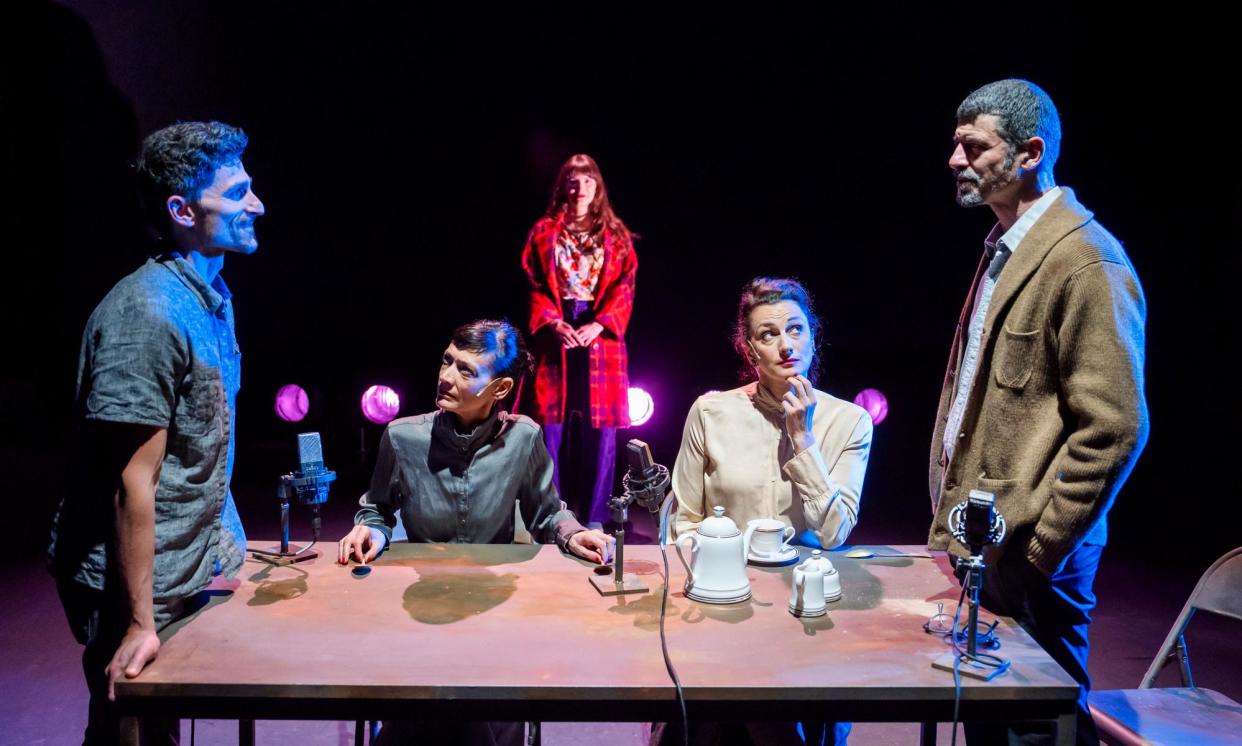L’Amore Del Cuore (Heart’s Desire) review – enticing Italian take on Caryl Churchill

In Blue Heart, a pair of one-act plays first staged in 1997, Caryl Churchill interrogated language and playwrighting with especially brute economy. This Italian production, directed by Lisa Ferlazzo Natoli, takes one of the plays, throws in stylised commedia dell’arte elements and verbalises stage directions to extract any remnants of naturalism.
What remains is a gnomic piece of theatre which might leave one half of the auditorium hungry for more and the other with indigestion. Either way it is an enticing and peculiarly profound hour.
A couple waits tensely for their daughter to return home from Australia. A contained domestic fractiousness between Brian (Fortunato Leccese) and Alice (Tania Garribba) occasionally bursts to the surface with Brian’s sister, Maisie (Alice Palazzi), caught in the middle.
Related: The Caretaker review – Pinter’s grim drama played more for laughs
Produced by the company lacasadargilla and presented in a translation by Laura Caretti and Margaret Rose, with English surtitles, the story is a series of stop-starts, numerously repeated, with characters speaking into dangling microphones and moments of amplified or echoey sound. As Churchill’s self-proclaimed “anti-play” with distinctly Pirandellian characters, it might be a metaphor for the playwrighting process or the blocked playwright – you can almost see the paper being screwed up as characters are forced back to the beginning.
Or it might be an aggressive game played by the playwright on the play itself which insists on being nothing and everything at once, careering from kitchen sink drama to absurdist fantasy with the entry of a giant Ionesco-style bird, and then on to potential horror as a cinema screen blinks awake and Brian relays a fantasy of self-cannibalisation.
The hand of the playwright is more nakedly visible in this staging which features a character (Francesco Villano) reading stage directions as God-like commands. We see the tiny flinches and grimaces of characters as they are forced into repetition, playing out conflict, dashed hope and pain over and over, sometimes at horribly comical double-speed or with words missing. The surtitles move rapidly at times so that you can easily miss lines which is a frustration but adds to the deliberate confusions and curveballs.
Churchill has said her intention for Blue Heart was their conceptual “destruction” but Heart’s Desire does not self-destruct. A trapped grief builds and the characters, full of intensity in the performances here, are Beckettian, forced into a perennial loop of waiting for a Godot-like daughter. There are intense monologues, a beautifully expressed fear of death, a buzzing existential dread in the air.
It is both anti-drama and proof of the powerful drive towards story-making. Within these fragments is a tale itching to find its meaning. Even in the knocking down of drama, something is being built, by us if not by Churchill.
• At the Coronet theatre, London, until 15 June


